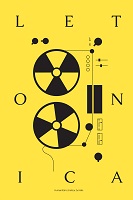A framework for exploring cultural and creative industries in regional contexts: the role of cultural intermediaries
A framework for exploring cultural and creative industries in regional contexts: the role of cultural intermediaries
Author(s): Annette Naudin, Ieva Zemite, Agnese HermaneSubject(s): Culture and social structure , Social development, Political Ecology, Sociology of Culture
Published by: Latvijas Universitātes Literatūras, folkloras un mākslas institūts
Keywords: cultural and creative industries ecosystem; cultural intermediaries; cultural policy; cultural entrepreneurs; regional development;
Summary/Abstract: The overarching goal of this article is to contribute methodological frameworks for identifying Latvia’s cultural and creative ecosystem and its key actors. The authors reiterate the significance of the cultural and creative industries (CCI) and the complexities of defining and analyzing the CCI. The main research question of the article is to ask: what concepts need to be considered when researching Latvia’s CCIs ecosystem? This leads to the following questions: 1)What are the characteristics of regional, national and global perspectives of CCI and how that might help in the exploration of regional CCI in Latvia; 2)Who are the key actors and what are their roles in CCI ecosystems? In exploring these questions the authors propose some theoretical frameworks and concepts for understanding CCI in Latvia. In the first part of this article, the authors re-assess definitions of the so-called ‘creative industries’ to clarify what has become a confusing term for researchers and policymakers alike (Hesmondhalgh and Pratt 2005; Chapain, Clifton, Comunian 2014; Dobreva, Ivanov 2020). For the purposes of this article, the authors use the term ‘cultural and creative industries’ (CCI) which, as explained below, encompass the relevant debates and meanings. Then, the authors reflect on the CCI in regional contexts: ideas of ‘locality’ and place-making in small towns and regions. Finally, attention is drawn to the role of cultural intermediaries, which are described as entrepreneurial professionals working as part of the CCI, facilitating relationships, shaping and contributing to local cultural and creative ‘ecosystems’ (Neelands et al. 2015). By emphasizing the position and role of actors engaged in intermediation, this article argues that it is important to highlight local social interactions and tasks, which are sometimes hidden or perceived to be inconsequential by policymakers, CCI practitioners, and scholars alike. To begin this discussion the authors review key scholarly debates for defining the CCI.
Journal: Letonica
- Issue Year: 2022
- Issue No: 46
- Page Range: 38-53
- Page Count: 16
- Language: English

